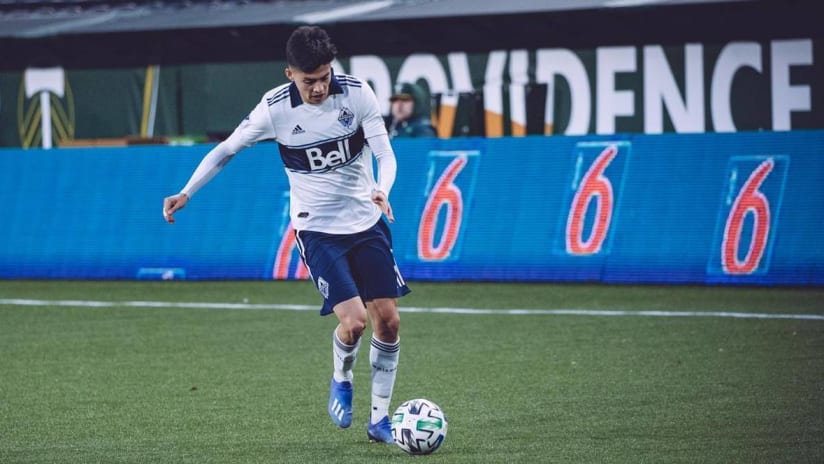EDITOR'S NOTE: As part of MLS Unites, a league-wide platform launched in partnership with the MLS Player Association that highlights the efforts of players, coaches, the clubs and the league during the COVID-19 pandemic, MLS will be featuring themed weeks across its platforms. This week's theme is Fitness and Wellness. Over the coming days, MLSsoccer.com will be showcasing content to provide inspiration for how to remain physically and mentally healthy while social distancing.
As MLS teams try to help their players manage during this period of social distancing amid the COVID-19 pandemic, the physical aspect is just one part of the puzzle.
With the league's training moratorium still in effect and the season currently postponed at least until May 10, players have been training on their own, doing their best to stay as fit and sharp as they can. But like anyone else, it's also the mental challenge that comes with social distancing that teams also have to take into account.
Going from a social environment surrounded by teammates every day to a period of isolation presents a different challenge from just staying in shape. Speaking on a conference call via Zoom with reporters on two weeks ago, Vancouver Whitecaps chief medical officer Jim Bovard noted a few of the steps the club is taking to ensure the players' mental health.
"We have within our club, we have mental health performance staff already that are part of the team, and they're able to re-purpose their skills and expertise into this area and stay a step ahead of it," Bovard said. "Much like I'm doing my updates from a medical point of view, they're looking at the mental health side and sharing with the players in various formats from written to conferencing, a lot of the simple principles from a mental health point of view will be there."
For a young team like the Whitecaps that also features many international players that were already adapting to new surroundings, it can present even more of a challenge. Bovard said the team is taking that into account as well, whether it's making sure to include a Spanish-speaker on team conference calls or holding team workouts over Zoom.
"We've been addressing that at many levels," Bovard said. "When we did the call on Sunday, it was a tag-team with someone who speaks Spanish -- that was the most prevalent language we have on the team — we recognize that the team that has been put together is a young team and we're aware that there are various skills that can be more of a challenge.
"We're looking at measures in terms of getting food to them, let alone their physical needs. Using [Zoom] they've done a workout done remotely from home, run by Jon Poli our strength and conditioning [coach]. So we're getting very creative in order to address all our players' needs. ...By doing a group workout using [Zoom] they can feel connected, if not physically, at least socially."
FC Cincinnati director of sports performance Gary Walker also discussed his club's approach to mental health in a Tuesday conference call, saying it's been a large point of discussion in meetings with the club's technical staff.
Walker, who spent 11 years with Manchester United before joining FC Cincinnati last year, said he can relate to the challenges that already come with being an international in a new city and that it's something he and his staff are being mindful of as they communicate with their players during the layoff.
"I think [mental health] is a huge component," Walker said. "I think as much for international players or players that don't live in-market, it's different. I know myself as an international here, there's that unknown, really, about what's happening back home. Obviously we can communicate via FaceTime like everybody else, but there's that which I think we need to be aware of as well, that some of our players are away from their families. So I think it's really important that we can support them from a communication perspective.
"We spoke yesterday as a technical staff via Skype and to really see if we can use this period for the players to engage them, and then see if we can [reach] them both individually and collectively. We sent a basic questionnaire out to the guys to get them to respond, and get our guys to self-reflect a little bit on their strengths and weaknesses from a physical and a tactical and a mental component and then look then what are their goals both short term and long term and then see what plan we can put in place around that."













